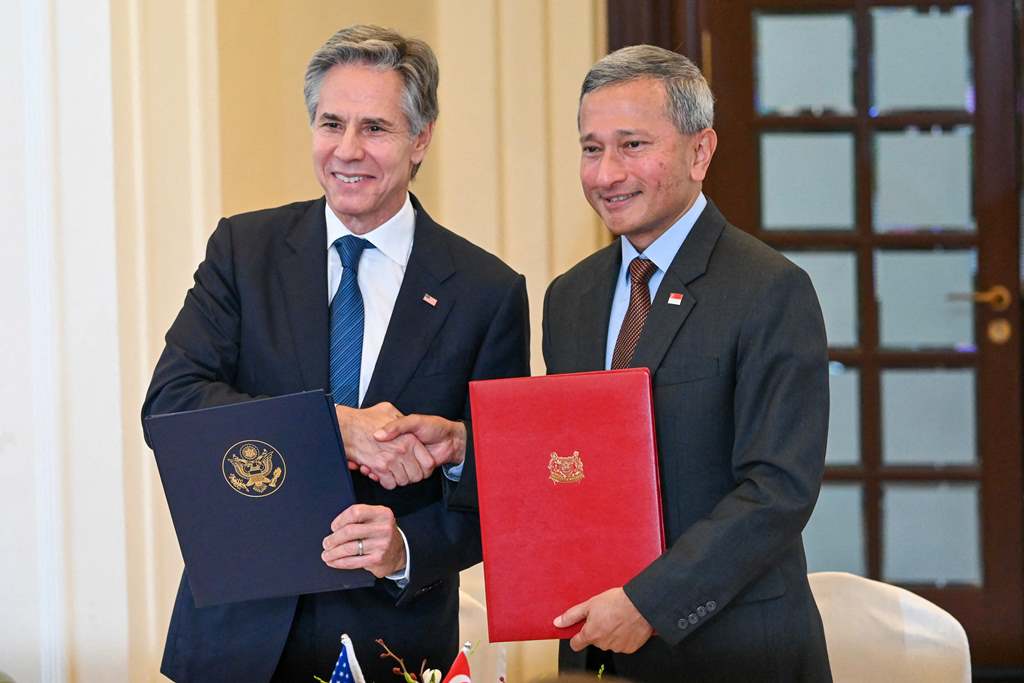SINGAPORE (AFP) – The United States and Singapore signed an agreement Wednesday to “deepen” cooperation on the peaceful use of nuclear energy as the city-state considers alternative power sources to cut carbon emissions.
Singapore, a regional financial centre and a key player in the global semiconductor industry, is currently reliant on oil and natural gas.
It is studying options, including nuclear power, to meet its target of net-zero carbon emissions by 2050.
US Secretary of State Antony Blinken and his Singaporean counterpart Vivian Balakrishnan signed the “123 Agreements” on civil nuclear cooperation during a visit by Washington’s top diplomat as part of his latest swing to Asia.
The 123 Agreements, named after their section in the US Atomic Energy Act, are critical for investment by US nuclear companies, which are wary of running afoul of proliferation-related laws.

“This agreement builds on the long-standing civil nuclear collaboration between United States and Singapore and outlines a comprehensive framework to deepen peaceful nuclear cooperation based on a mutual commitment to nuclear nonproliferation,” both countries said in a joint statement.
The agreement is expected to come into force by end-2024 after being reviewed by the US Congress, the statement said.
The pact will last for 30 years and will “facilitate Singapore’s access to detailed information on US nuclear energy technologies and expertise that are under export control,” according to the statement.
Singapore will also join a US Department of State programme that enables partners to better understand small modular reactors or more advanced nuclear energy technologies, the statement added.
Singapore’s Energy Market Authority said on its website that small modular reactors “promise enhanced safety and economics” compared to conventional nuclear power plants, although most of these technologies are still undergoing research and development.
Washington has active “123 Agreements” with 22 countries, including China, Indonesia, the Philippines and Vietnam, as well as with two institutions — the European Atomic Energy Community and the International Atomic Energy Agency.



















































